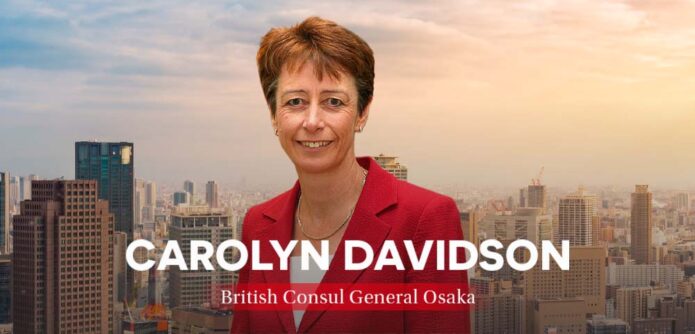Chief executive officer Robert Walters plc
The specialist recruitment firm that Robert Walters set up in 1985 today has 48 offices in 23 countries and plans to start operations in Munich and Rio de Janeiro in the near future. Since 2000, when Robert Walters plc opened in Tokyo, it has become the group’s third-largest office in terms of revenue, and was recognised as the Company of the Year at the BCCJ 2011 British Business Awards.
Are Asian economies slowing?
Since our industry does not mirror GDP statistics, any slowdown hardly matters. We deal with international, bilingual professionals and Japan is the third most profitable country for Robert Walters.
Over the past 10 years, the economy here has lacked vibrancy, yet demand for professionals has remained high. We have grown from a one-person office to one of Japan’s largest global recruiters. Looking back 12 years to when I first came to Japan, it is hard to believe that the job-for-life mentality of those days has changed so quickly.
What further economic changes do you expect in Japan?
The message is mixed. While, for cost considerations, many banks and corporations are moving their head offices to Malaysia and Hong Kong, for example, other firms are vigorously internationalising, so there is a push and a pull. Forecasting Japan’s future is tricky but, I expect, it may become the world’s largest market. There is huge potential here for us: were we not to triple our business in three years’ time, I believe we will have missed a trick.
How might the skills shortage affect Japan and the UK?
Two points are relevant to mature markets. First, life is becoming more complicated as legislation increases, and the new laws require the services of experienced professionals.
Second, over the coming 15 years, there will be a shortage of people between the ages of 20 and 40. Even now, there are not enough people with the required skills and technical abilities, and the International Labour Organization predicts a further 17% decline in this age group between 2005 and 2020, but the gap cannot be filled by simply throwing bodies at the problem.
What challenges face a firm entering a new market?
They include bureaucracy, corruption in some countries, a different culture, licensing requirements and the acquisition of local knowledge. An understanding of the market is needed: many companies have entered foreign markets with little sensitivity and have failed. Maybe it’s our imperial heritage, but we Brits are good at understanding foreign markets and adapting our behaviour.
What would you advise to overcome the hurdles?
The challenges are mitigated by the way one enters a country, so we try to have a country’s nationals run our local businesses. Although we often start a new business with an expat, we are keen for locals to take over, so that our DNA is established in the local environment.
As an example, take Japan. The intention is to triple the size of our Japan operations, so the staff—with Japanese now accounting for nearly two-thirds of the Tokyo complement—ideally should comprise a mixture of Japanese and international individuals.
How do you maintain standards of quality worldwide?
It’s the attention to detail. Every six months, I meet the reception staff in London to discuss interview room utilisation rates and how quickly phones are answered.
With each of our offices worldwide in a prime space, we seek to put forward the best possible image. As organic growth is transferred to other offices, continuity and conformity are created, ensuring that the heart of each business is the same.
We have 48 offices around the world, and in each of them you will find the same furniture, branding and quality of reception. It is important that my vision cascades down through the layers of management and be understood. Since we do not produce a physical product, our service is measured in terms of first impressions: our web site, the first phone call and our iPhone apps. These factors are important to getting, and staying, ahead; thereafter it’s just a case of getting on with the job and meeting local requirements.
How important is Japan to your business overall?
When I first came to Japan, I decided—based on one client’s suggestion—to open an office here. It was not cheap to do so, but we pressed ahead and the business became successful.
From the earliest days, I saw that this is an unusual place. It has a magnetism that is quite extraordinary and is of interest in our world of recruitment, right now being the hottest spot anywhere. With the employment system changing and an ageing population of 130 million, everything about Japan seems to be in our favour. We are the biggest professional recruitment firm here and, if we continue expanding, Japan soon will be the largest office in the Robert Walters group.






